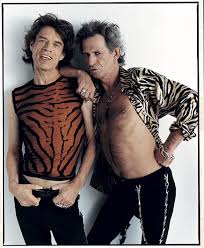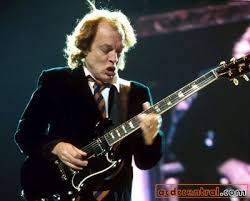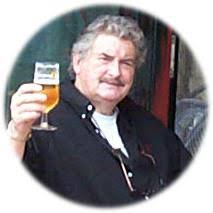Each of the Old Geezers above
are musicians in the cultural tradition of Gaelic/Celtic-Anglo/Saxon
folk music, spread over the last two centuries, and whose music is
relevant to Superconductivity today and the search upward tomorrow
and beyond...and especially the frustration undergone. Read
the "brown fine print," and suggest your favorite SuperTune to
include. Enjoy.
Play using Windows
Media Player (skins mode) embedded into Internet Explorer and/or
Windows 7
| Realities of Life |
| "You
Can't Always Get What You Want...," M. Jagger and K.
Richards, (Let It Bleed, ca. 1969).
[Both Bill Little and I want
this played at our respective funerals. The legend is that
Mick wanted to get a "cherry coke" at a London "chemist's"
who were out of cherries and cherry syrup. He was thus
told, "You can't always get what you want." This
typifies the long search for room temperature
superconductivity. Enjoy.} |
| "Tomorrow,"
R. Seger, (ca. 1970s).
[A parable on the
difficulties of predicting the future...like applications of
superconductivity!] |
|
"It's
a Long Way to the Top...,"
Bon Scott, Malcolm Young and Angus Young, (High
Voltage, 1975).
[...If You Wanna Rock 'n' Roll. The "Top" in this
case is T > 300 K.] |
| Songs of Irish Freedom |
| "Roddy
McCorley," Ethna Carberry, (A Ballad of the Irish
Rebellion of 1798, lyrics ca. 1890).
[Nothing to do with
superconductivity, although the underlying ideas that
eventually explained it were developed by the Irish
physicists Michael Faraday and William Thomsen. If you
ever wonder why immigrants come to America, here's one
reason...at
home you got hung if you spoke out.] |
| "Boolavogue,"
P. J. McCall, (The Wexford Uprising in 1798, lyrics 1898).
[Ambush of a British cavalry
regiment led by Father John Murphy, pastor of the local
parish. Involvement of Catholic clergy against the British
was unusual, since a "quid pro quo" between the Irish
hierarchy and the Church of England required the
excommunication of all and any who fought against the crown.
Father Murphy was later captured, hung and his body burned.
Nice.] |
| "Grace,"
Frank & Sean O'Meara, (The Easter Uprising in 1916, lyrics
1985). [The ballad of Irish poet
Joseph Plunkett and his bride Grace Gifford. They were
to be married on Easter Sunday, 1916. However, unknown to
Grace, Plunkett was a member of the Irish resistance
behind the Dublin rebellion and was subsequently captured.
The two were married in Kilmainham jail on the early morning
of 4 May 1916. They were given 10 minutes together
guarded by 15 British soldiers. Plunkett was then
taken out and shot.] |
| "Only
Our Rivers Run Free," Mickey MacConnell, (Homily on
a United Ireland,lyrics 1985).
[Mickey MacConnell is a Kerry
newspaper columnist and song writer, and Only Our Rivers Run
Free was written during the times of the IRA attacks in the
North.] |
| "The
Town I Loved So Well," Phil Coulter, (Derry and the
Troubles, lyrics ca. 1970s).
[Many consider this ballad
the unofficial National Anthem of Northern Ireland. It
recounts the garrisoning of Derry by the British Army during
70s and the destruction that followed. It concludes,
"I can only pray for a bright new day," and recent accords
between the North and the Republic may indeed see its
dawning. Yet even today there is very little social
mixing between the Protestant and Catholic populations in
Northern Ireland, as between Shia and Sunni in Iraq.
Such is a situation impossible for most Americans to fathom.] |
| "The
Skye Boat Song," Harold Boulton, (ca. 1930s, lyrics
based on a 18th Century Scottish aire).
[Relates the escape of
Charles Stuart to the Isle of Skye after his disastrous
defeat at the hands of the English at Culludon. Maybe
he had some members of Clan Grant on board as well.
Fortunately, many Scots remained to later create and rise to
give us James Clerk Maxwell, James Dewar and Peter Higgs...and
many other "British" scientists.] |
| "The
Fields of Athenry," Pete St. John, (ca. 1970s...many,
many "covers," this one by Anthony Kearns of the The Irish
Tenors from the album Live In Belfast (2000)).
[If you take the train straight westward from Dublin toward
Galway City, you'll encounter the farming community of
Athenry about 3/4 along your journey. Ireland
throughout much of the 19th Century was "ruled" by absentee
landlords, e.g., around Athenry, by Sir Charles Trevalyan,
during the Irish Famine of the 1840-50s. There was no
famine...simply the British overlords selling the Irish
crops abroad for greater profit. As he sails off to
Australia, convicted of stealing "Trevalyan's Corn" to feed
his family, "Michael" cries out to his wife and children,
"Mary, nothing matters when you're free." Have you yet
tears in your eyes?] |
| "The
Butcher's Apron," Wolfe Tones, (ca. 2001...released
on several Wolfe Tones albums)).
[Theobald Wolfe Tone (b. 1763...Wikipedia
here)
is considered one of the fathers of the Irish independence
movement. The Wolfe Tones are a well-known Irish folk
group whose lyrics generally focus on Ireland's struggle to
gain its freedom from English domination. "The
Butcher's Apron," symbolizing the English "cross of St.
George" banner, and the brutality wrought, not only on
Ireland, but other members of the former British Empire
generally. The lyrics have recently been analyzed
(September, 1913) in an essay by Diego Patrick Grant
here.] |
| "Thank
God for America," Wolfe Tones, (ca. 2003...released
on a variety of subseqent Wolfe Tones albums)).
[The final cleansing of the
apron in the laundry tub of America. Listening to the
lyrics one must conclude that no two nations on earth share
such close ideological and cultural goals than Ireland and
America.] |
| Electricity |
|
"High
Voltage,"
Bon Scott, Malcolm Young and Angus Young, (T.N.T,
1975).
[No transformers or power electronics needed...except for
Angus' guitar.] |
| Songs to Drink To |
| "Ringsend
Rose," Pete St. John, (Ringsend District, Dublin,
lyrics 1970s (?)).
[A young man is smitten by
17-year old "satin-skinned" seamstress Rose Donaghue "all
fresh and new." IMHO, the most lovely of Irish love
songs.] |
| "Anna
Liffey," Peadar Kearney, (The River Liffey, Dublin,
lyrics ca. 1920s).
["We've
got the whiff of ray and chips, and Mary softly sighed; Oh
John won't you come, For a wan and wan Down by the
Liffey side." A couple strolling along the banks of
the river Liffey in Dublin in anticipation of their
impending marriage
and to have "little children and rear them neat and clean to
shout up the Republic...and fight The Saxon Hun."
Kearny is the author of the National Anthem of the Republic
of Ireland.] |
| "Molly
Malone," James Yorkston (a Scot!), first published in
Cambridge, Mass. around 1883. Captured here from Irish Pub
Songs.
[A ballad honoring a Dublin
fishmonger (merchant). "Molly" is familiar shorthand
for the ubiquitous "Mary" and "Margaret" of the various
Irish Female lovelies, including my Mother and her numerous
cousins. However, this entry is dedicated to one
"Molly McA," and she knows who she is!] |
| Videos by Diego
Patrick Grant |
|
"Sons
of the Father,"
Written and Produced by Diego Patrick Grant, (Award
Winning Leland High School Senior Media Arts Project, May,
2009).
[A dark family parable
inspired by the Russian Mafia.] |
|







